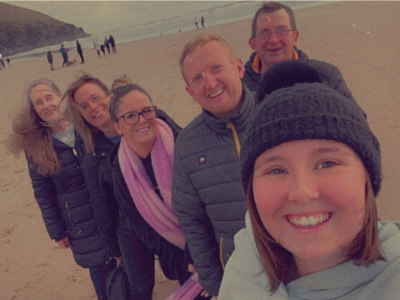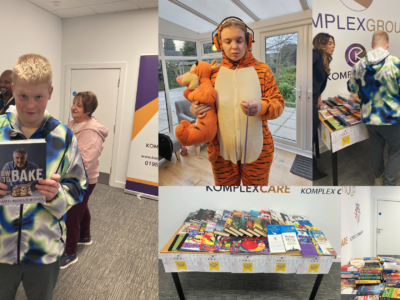
Many of the clients we work with at Komplex Community have a combination of high acuity health conditions. This means that the behaviours they display can be extremely challenging.
So an important part of our training is focused on ensuring that every staff member knows how to de-escalate situations. This helps ensure the environment isn’t triggering, and keeps themselves and the client safe.
We are an accredited PRICE training centre – this stands for Protecting Rights in a Caring Environment.
We teach teams about positive behaviour support, respecting human rights, and person-centred care. Trainers also focus on understanding the needs of the client, in order to implement de-escalation strategies.
Our teams must also understand the different types of – and common responses to – trauma (known as trauma informed care). Then they can provide care and an environment in which the client feels safe, promoting choice, trust, collaboration and empowerment.
Core PRICE training values include:
- Compassion, dignity and respect
- Quality of life
- Preserving and protecting positive relationships
- Empowerment
Distressed or challenging behaviours can incorporate:
- Verbal or physical aggression
- Violence towards others
- Self-harm
- Withdrawal
These will all have a purpose for the individual displaying them, or can be used to communicate an unmet need to their care team.
That’s why the first focus (known as primary prevention) is around making quality of life improvements, managing situations known to trigger a behaviour, changing environments and providing opportunities for new experiences.
Secondary strategies – when the primary ones haven’t worked – include using calming approaches and diverting attention.
What is de-escalation?
De-escalation involves using verbal and non-verbal communication approaches and strategies to reduce the size, scope and intensity of crisis for a client.
All of these approaches must sit within the boundaries set down by various pieces of legislation and guidance. This includes the duty of care and duty of candour we have to clients, as well as our safeguarding responsibilities.
When does PRICE training advocate use of restrictive interventions?
When all other strategies have failed to work, restrictive interventions are the very last resort. These types of interventions are those which can infringe a person’s human rights and freedom of movement, such as observation, seclusion, and physical restraint. But this has to be balanced against the risk of harm if the carer does not intervene.
Physical restraint should only ever be used where all other options have been exhausted, and where there is a real risk of imminent harm to the client or to those around them. This level of intervention should be minimised and should only be used in accordance with all of the regulations that the trainees are taught during the PRICE course.
But it’s important those on the course have the opportunity to practise safe methods of restraining a client, if this is needed. While we want our care teams to focus on all of the primary and secondary strategies we teach them, and minimise their use of restraint, if they do need to then this must be done in the safest way possible.
For more information about our training, email enquiries@komplexcommunity.co.uk or call 01952 987733.



